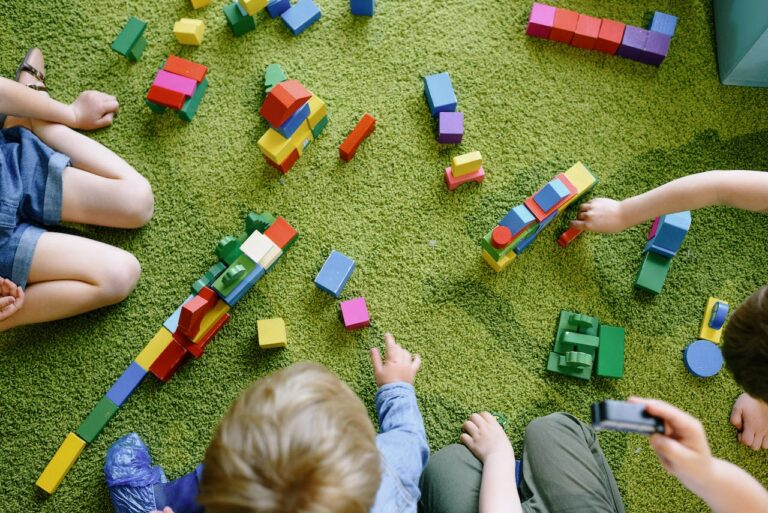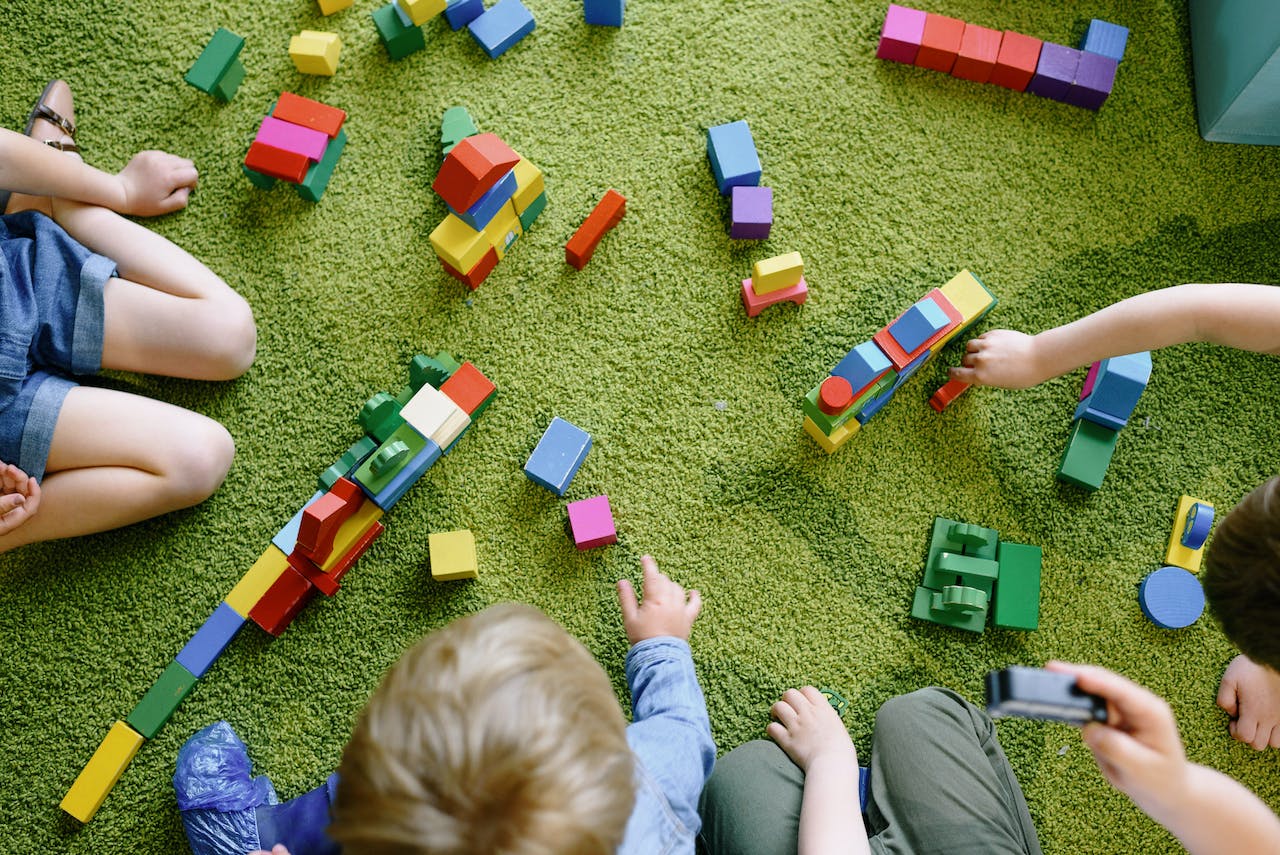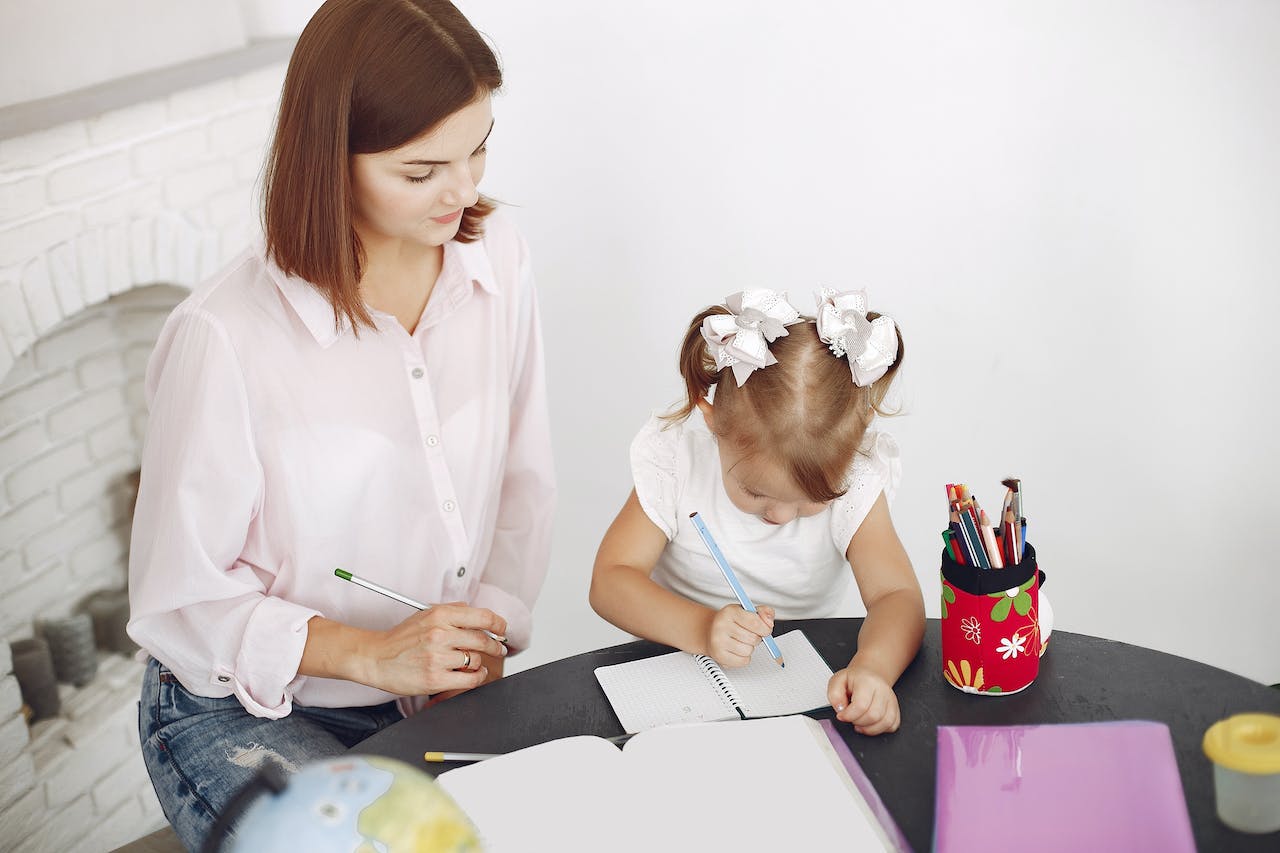Working hours
Mon - Fri: 8am to 5pm
Mon - Fri: 8am to 5pm
Share


What is a language-rich environment? It’s a term we hear a lot in the early years, particularly by Ofsted, but what does it actually mean?
A language-rich environment in a childcare setting means more than just having a lot of words on display. It’s about creating a fun and talkative space! Instead of just reading, which most young children can’t do, it’s the chatting, singing, storytelling and roleplay that promotes language development to its fullest. Using lots of different words in as many enjoyable and friendly ways as possible creates a language-rich environment and encourages children to become excellent communicators.
Let’s have a look at it in a bit more detail…
When Ofsted talks about language-rich environments in early years settings, they’re examining how well you and your nursery support the development of young people’s language and communication skills. It’s part of Ofsted’s focus on the quality of early education to ensure the under 5s are ready for their learning journey.
In the context of Ofsted inspections and reports, a language-rich environment suggests that a setting;
Does your setting actively encourage children to communicate using different methods – talking, listening and body language? Do your staff engage in conversations and pay attention when children speak?
Does your team use open-ended questions with children? Do children get the time needed to listen, process and then respond?
Ofsted will look for this within your setting to make sure children are actively communicating and thinking and aren’t just exposed to words. This helps their language development and helps to prepare them for future learning.
A rich vocabulary allows children to express themselves fully, and the Early Years Foundation Stage (EYFS) statutory framework suggests that as childcare practitioners, we introduce them to diverse selections of words through activities, books and conversation.
As well as creating a word-rich environment, supporting the development of children’s vocabulary also means you should;
Using a tailored approach like this will ensure that you meet the needs of children in your care to help them build a strong vocabulary within a language-rich environment.
Encouraging a love for reading and storytelling is crucial in your curriculum. Why? Because offering plenty of age-appropriate books and engaging storytelling sessions helps to provide lots of ways children can become fascinated with literature and language. Not only does this create a love for reading, but it also nurtures children’s literacy skills to set them up for life.
When you create a language-rich learning environment brimming with lots of different and engaging resources, such as open ended resources, interactive games and visual aids, the children there will want to get involved in learning. In fact, most of the time, they won’t even realise that’s what they’re doing.
Sparking curiosity and creativity is one of the best ways you can help children get to grips with the intricacies of language, expand their vocabulary and develop their communication skills.

In your early years setting, supporting children with English as an Additional Language (EAL) requires you to acknowledge the diversity and needs of children who speak languages other than English at home. Support could include specialised EAL activities, additional language lessons and the use of culturally sensitive materials.
As a nursery practitioner, it can help to;
To support children with EAL further, you might find the strategies discussed in our previous blog, ‘How To Support Children With English as an Additional Language’, a useful tool.
Of course, it is!
Things that have affected the speech and language development of children include…
Early years (0-5 years) is the key stage for future learning, and these significant changes mean we, as childcare professionals, need to be more aware than ever to identify and close gaps to ensure watertight language-rich environments that children can thrive in.
If you work in Early Years, there’s no time like the present to make plans to equip yourself with the knowledge needed to create, maintain or enhance a language-rich environment.
Join us in January 2024 for an informative session on ‘Supporting Communication and Language In the EYFS’, and together, we can discover an entire array of different ways to enhance children’s communication skills and language development across all childcare settings.
With the ever-changing regulations and guidance, join our monthly newsletter to stay current and learn more about running a better childcare setting.
Simply enter your details below to join our mailing list.
"*" indicates required fields
By completing this form you are agreeing to our privacy policy You can unsubscribe at any time

Millennium House, High Street,
Studley, Warwickshire, B80 7HJ.